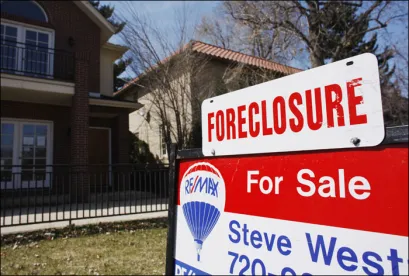On December 31, 2016, the remedial provisions of “An Act Clearing Titles to Foreclosed Properties” (the “Act”) will take effect in Massachusetts. The Act is designed to clear legal title for Massachusetts homeowners who purchased homes with a prior foreclosure, by limiting the time period that former homeowners can challenge the foreclosure sale. The Act should be seen as welcome relief to the industry, but as detailed below, the Act still has some limitations. Indeed, like most rules governing foreclosure-related litigation, attorneys representing individuals that are the subject of a foreclosure action will inevitably try to find ways to challenge the Act and seek to avoid its intended and desired results.
Our December 10, 2015 Alert provides the background and details of the Act.[1] This Alert focuses on the possible immediate impacts to mortgage lenders, servicers, investors, and other financial institutions now that the remedial provisions of the Act are nearing the December 31, 2016 effective date.
Key Provisions
No Relief to Properties Owned by Financial Institutions. The Act provides no relief to mortgagees, noteholders, servicers, their affiliates, or government entities like the Federal National Mortgage Association (Fannie Mae) and the Federal Home Loan Mortgage Corporation (Freddie Mac) that continue to hold title to properties following foreclosure sales. The Act only protects from liability “arm’s length third party purchasers for value,” defined as a party who either (1) purchased the property directly at the foreclosure sale, or (2) purchased the property from the bank or another entity at some point after the foreclosure sale, to the extent the power of sale was not duly exercised. The Act does not, however, protect mortgagees or those signing affidavits on a mortgagee’s behalf if the affidavit was not duly executed. While foreclosing parties, noteholders, and mortgagees will not benefit directly from the Act on properties that they own or service, they will benefit from the resolution of title disputes, the insurability of properties they formerly owned or foreclosed, and the validity of mortgages that they currently service.
Covered Time Period. The Act establishes a three-year statute of limitations period to bring a challenge to a foreclosure. To timely bring a challenge, a person entitled to notice of sale (those parties listed in M.G.L. c. 244, § 14 as having a legal interest, a lien, or an encumbrance on the property) must file an action or assert a defense or counterclaim challenging the validity of the foreclosure sale, and must also record a copy of the complaint or pleading that asserts the foreclosure challenge in the registry of deeds for the county where the property lies before the limitations period expires. The Act reaffirms the mortgagee affidavit requirements of M.G.L. c. 244, § 15, including the provision that the recording of a valid affidavit is “evidence that the power of sale was duly executed.” The Act also provides that after three years from the date that the mortgagee records a validly executed affidavit, the affidavit serves as “conclusive evidence” that the power of sale was duly executed.
Retroactive Application. The Act applies retroactively. To address constitutionality concerns, for mortgagee affidavits recorded prior to December 31, 2015, the statute of limitations period is the longer of the full three-year period or one year from the effective date of the Act, December 31, 2015. Thus, by the terms of the Act, for all foreclosures completed prior to December 31, 2013, the deadline to assert and record a challenge is December 31, 2016. For foreclosures completed between January 1, 2014 and December 31, 2015, the three year statute of limitations runs from the date of the foreclosure.
Consequences of Falsifying Affidavits. The Act makes any material misrepresentation contained in the mortgagee’s affidavit a per se violation of the Consumer Protection Statute, M.G.L. c. 93A.
What Does this Mean Now and Why Should We be Concerned?
Ongoing Title Claims. If you have pending title litigation brought by an individual who purchased a foreclosed property (usually maintained by and through title insurance counsel), the operation of the remedial provisions of the Act would deem title cleared as of January 1, 2017, unless the prior owner timely filed a pleading asserting a challenge to the foreclosure and recorded that pleading in the registry of deeds. If a pending foreclosure title litigation is ongoing, there may be more than one option for successfully concluding the case, including voluntary dismissal, dispositive motion, and other options. The best course of action depends on the facts and circumstances of the particular case.
Shifting the Focus to the Affidavit. There has been increased litigation over the sufficiency of the mortgagee affidavit, which prior to the Act operated as presumptive evidence of compliance with the notice of sale requirement.[2] The Act alters the affidavit requirements. To gain presumptive effect to affidavits filed prior to the Act, the affidavit had to show that the requirements of the power of sale and “the statute” (M.G.L. c. 244, § 14) were complied with. Now, however, the affidavit must show compliance with the power of sale and “the law.” The reference to the “law” is broader and more ambiguous than the “statute.” The change is likely intended to account for recent and evolving case law including the noteholder status,[3] notice of right to cure under section 35A,[4] notice of right to cure under paragraph 22,[5] and other issues that could be captured in the affidavit. Given the conclusive effect of the affidavit after three years, increased affidavit scrutiny and litigation is anticipated. This is one area where we may see attempts to get around the curative measures of the Act.
Who Can Challenge? The Act limits foreclosure challenges within the three-year limitation period to those that are entitled to notice of sale. Since those entitled to notice as set forth in M.G.L. c. 244, § 14 do not include tenants or others who have no ownership or other interest in the property, it appears that title challenges by tenants or other occupants will not prevent the vesting of title in an arm’s-length third-party purchaser. That said, we anticipate attempts to broaden the scope of those entitled to make challenges under the Act to test who has standing to challenge.
To Ibanez and Beyond. The Massachusetts Legislature clearly intended for the Act to resolve title disputes arising out of the Ibanez case.[6] While the Act will no doubt be used for that purpose, the Act could also have a much broader impact. On its face, the Act potentially resolves all foreclosure-related title defects, including but not limited to Eaton defects (note status), Pinti defects (contractual notice of right to cure), and potentially limitless future title defects. Because the Act is retroactive and silent as to what specific title issues it resolves, a recorded mortgagee affidavit compliant with the earlier version of M.G.L. c. 244, § 15, which did not require any detail regarding the note or notice of right to cure, could cure those issues as well as Ibanez issues. Thus, the Act may end up being a broader fix than intended. The key in any case is the recording of a compliant mortgagee affidavit.
Potential Challenges. Since the enactment of the Act, consumer attorneys have indicated that they plan to challenge the constitutionality of the Act. These attorneys are expected to argue that the retroactive application of the law is an ex post facto law that should not be enforced. They may also challenge the application of the law, and argue that its application is limited to very narrow circumstances and that the scope of who may challenge is broader than written. As noted above, we expect to see challenges to the mortgagee affidavit, given that noncompliance with any law that is now incorporated by the Act into the affidavit requirement could be grounds to show that the affidavit is insufficient and thus the power of sale was not duly exercised. Time will tell how courts react to such challenges, and whether any such challenges will erode the Act’s scope.
Conclusion
While the Act is welcomed relief to the downstream purchasers, prospective homeowners seeking to purchase a property that had a prior foreclosure in its chain-of-title, title insurers, financial institutions, and practitioners that have been working diligently to resolve various title issues in Massachusetts following the Ibanez decision, it remains to be seen how the relief will be applied in courts. We will monitor these issues into 2017 and provide further reports on significant developments.
[1] See http://www.klgates.com/an-act-clearing-titles-to-foreclosed-properties-in-massachusetts--maybe-12-10-2015/.
[2] Fed. Nat’l Mortg. Ass’n v. Hendricks, 463 Mass. 635, 636 (2012).
[3] Eaton v. Fed. Nat’l Mortg. Ass’n, 462 Mass. 569, 571 (2012) (holding foreclosing mortgagee must also hold note or act at the behest of noteholder).
[4] U.S. Bank Nat’l Ass’n v. Schumacher, 467 Mass. 421, 422 (2014) (holding 35A not part of the statutory notice of sale).
[5] Pinti v. Emigrant Mortg. Co., Inc., 472 Mass. 226, 227 (2015) (holding mortgage provision requiring notice to cure is term of mortgage requiring strict compliance).
[6] For a detailed description of the Ibanez case, see http://www.klgates.com/an-act-clearing-titles-to-foreclosed-properties-in-massachusetts--maybe-12-10-2015/.





 />i
/>i

